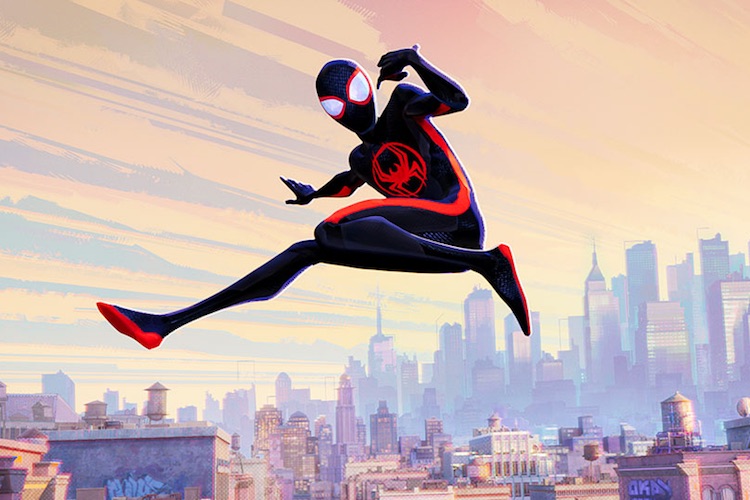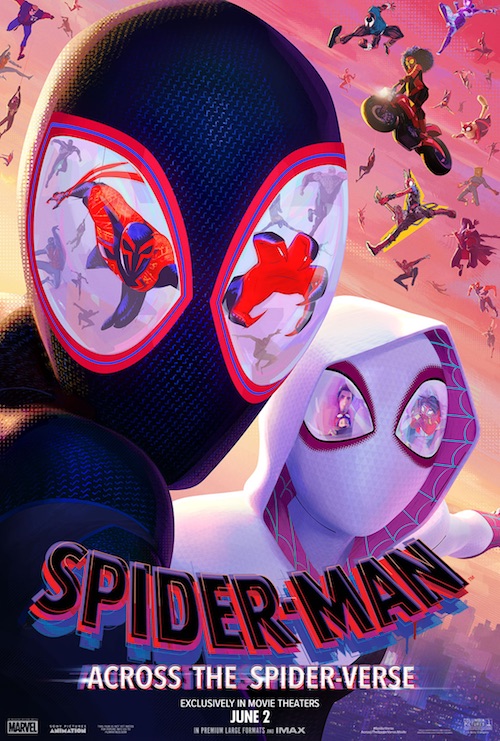
Movie Review: Spider-Man: Across the Spider-Verse
What We Liked
What We Didn't Like
Sixteen years after Sam Raimi’s first Peter Parker adventure and a decade after the introduction of the Marvel Cinematic Universe, 2018’s Spider-Man: Into the Spider-Verse revolutionized superhero cinema. A visual marvel (pun intended) backed by witty humor, a deep heart and an understanding of what makes the character so beloved, it was not only the best Spider-Man movie, but potentially the greatest superhero movie ever made. Now, Spider-Man: Across the Spider-Verse proves it was no fluke.
Building on the boundless creativity and imagination of its predecessor, Across the Spider-Verse infuses the genre with much-needed vitality and imagination, overwhelming audiences with an aesthetic audacity never seen in an animated film from a major studio. It stretches the boundaries of comic book cinema and takes advantage of the freedom animation provides without losing sight of what made the first film so special.
Taking place roughly a year after Into the Spider-Verse, the sequel opens not with Shameik Moore’s Miles Morales, but Hailee Steinfeld’s Gwen Stacy. Isolated in her own dimension, Gwen misses the one friend she’s allowed herself to make over the last several years as Spider-Woman. The film provides a more in-depth look at her tragic origin, in which her world’s Peter Parker was killed and Gwen’s police captain father calls for her arrest. Before he can slap on the cuffs, a mysterious portal opens and Gwen is introduced to spider-people from across the multiverse, including motorcycle-riding, pregnant Jessica Drew (Issa Rae) and the mysterious, serious Miguel O’Hara (Oscar Isaac). They invite Gwen to join the Spider Society, which polices the multiverse that connects all spider-folk and ensures that nothing disrupts origin-generating “canon events.”
Miles, meanwhile, is isolated on his own Earth, balancing the weight of Spider-Man duties with the responsibilities of being a college-bound teenager. There’s also the added stress of keeping his secret from his parents (Brian Tyree Henry and Luna Lauren Velez) and the inconvenience of a “minor villain of the week” named The Spot (Jason Schwartzman), a bad guy sporting inter-dimensional portals all over his body. When Gwen pays a visit to Miles’ dimension, he’s thrilled to see his friend and have an opportunity to reconnect, but curious why he hasn’t received his invitation to the Spider Society. As you might guess, that takes Miles on a cross-dimension adventure that puts him into contact with hundreds of other spider-people (and that estimate might be conservative).
That’s a lot of plot, and it only makes up about the first hour of this 140-minute movie. Across the Spider-Verse speeds through its story, dancing through countless Easter eggs and nudges at 60 years of Marvel comics, movies and TV lore, and colliding universes with a confidence and commitment to weirdness that rivals Everything Everywhere All at Once (and puts the MCU’s live-action multiverses to shame). It’s a movie bursting with ideas, references, gags, and action. It should topple over under the weight, but the miracle – as with Into the Spider-Verse and most of the films produced by Phil Lord and Chris Miller – is that what should be annoying is energizing and fun.
Joaquim Dos Santos, Kemp Powers, and Justin K. Thompson take over directorial duties and deliver what is quite simply the most astonishing animated film of the last 25 years. Across the Spider-Verse takes the comic book-inspired look and tone of the first film and builds on it, taking new visual risks and approaches. Individual multiverses have their own distinct look and style. Miles’ continues with the Ben Day Dots aesthetic that looks ripped from a modern day issue of Spider-Man comics, while the backgrounds in Gwen’s world have a gorgeous watercolor design that delivers a beautiful emotional punch in the film’s back half. There’s a Vulture from a Renaissance dimension created with parchment, and trips into universes portrayed not simply with different styles of animation but different media altogether (fans of Lord and Miller’s Lego Movie will get a kick out of one universe).
The sequel also keeps the first film’s penchant for packing every frame full of comic book interstitials, visual gags (a simple cola sign got a giant laugh from me), and so many references to Spider-Man history across various media that you can almost hear the brains of film bloggers exploding as they try to keep track. No cameo goes unexplored, and no bit of Spidey trivia is too arcane. Even more than the first, this film is a celebration of who Spider-Man is as a character and how malleable his story is. The film expands the repertoire of fellow Spideys eager to either join or thwart Miles; the best might either be the super-positive Pavitr Prahbakar (Karan Soni), who operates in a dimension called Mumbhattan, or Daniel Kaluuya’s anarchy-loving, authority-fighting Spider-Punk. Jake B. Johnson’s Peter B. Parker is back (with a baby!), and while it’s tempting to mourn the absence of Nicolas Cage’s Spider-Man Noir or John Mulaney’s Peter Porker, there’s simply so many spider-peeps that you’ll barely notice their absence.

Shameik Moore in “Spider-Man: Across the Spider-Verse.”
But Across the Spider-Verse would be a failure if it were just a non-stop collision of references and visual gags. Thankfully, it maintains its focus on its characters and continues to explore themes the first movie delved into regarding what it means to be Spider-Man (or Woman, Horse or Pig) and who gets to wear the mask. Much of the film’s back half concerns the “canon events” that comprise Spider-Man’s story and how much suffering is truly required to be a hero. Despite their animated existence, Miles and Gwen are three-dimensional characters. Their friendship is fun; their loneliness is palpable. The film’s opening stretch focuses largely on Miles’ relationship with his parents, particularly his mother, and the conversations are so real and heartfelt that I could have easily spent an entire film taking in their dynamic. As inventive, funny and action-packed as the film is, it’s also the rare superhero movie to understand the importance of taking time to let its characters breathe, understand their wants and frustrations, and anchor them to real emotion. Unlike many similar movies, which exist just to build out an unending story, the Spider-Verse movies have something to say about family, friendship, identity and self-worth. They are miracle movies; if every comic book movie took this care with their world and their characters – and more of them were animated, which seems to be the ideal way to bring these stories to life – superhero fatigue would never be discussed.
And sure, some may be frustrated that the film builds to a cliffhanger that we won’t see resolved until Spider-Man: Beyond the Spider-Verse hits theaters in March. And while it leaves the feeling necessarily incomplete, it’s in keeping with the comic book origins to leave audiences hanging at a big moment. And it’s a much better feeling to reach a cliffhanger going “I want to know the rest now” than “we have to sit through more of this?” as the recent Fast X did. Spider-Man: Across the Spider-Verse is the rare sequel to meet – and potentially exceed – the heights of its predecessor (which was the best film of 2018). It’s another high-water mark for superhero movies, animated films and theatrical experiences in general, and should be seen on the biggest, loudest screen possible.



